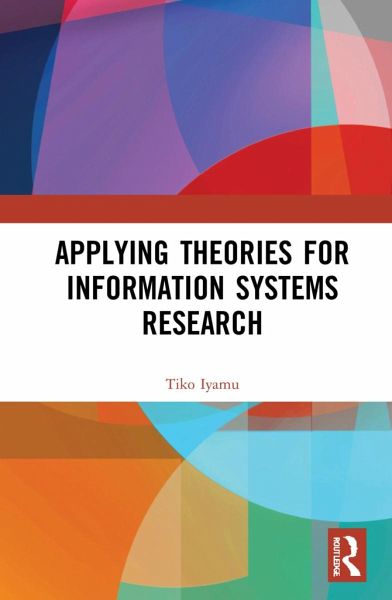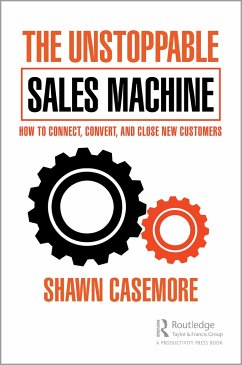
Applying Theories for Information Systems Research
Versandkostenfrei!
Versandfertig in 1-2 Wochen
167,99 €
inkl. MwSt.
Weitere Ausgaben:

PAYBACK Punkte
84 °P sammeln!
This book sets out to provide postgraduate researchers with guidance on selecting and applying sociotechnical theories to the study of information systems, including how they can be combined to complement each other. Until now it has been difficult to source advice on the application of these theories, and there has been no single book that combines multiple theories as this does. Examining the impacts of technological developments and seeking to understand how humans interact with computers and systems is a dynamic field but can often confuse researchers with the overwhelming number of social...
This book sets out to provide postgraduate researchers with guidance on selecting and applying sociotechnical theories to the study of information systems, including how they can be combined to complement each other. Until now it has been difficult to source advice on the application of these theories, and there has been no single book that combines multiple theories as this does. Examining the impacts of technological developments and seeking to understand how humans interact with computers and systems is a dynamic field but can often confuse researchers with the overwhelming number of social theories that are utilised to derive insights. Instead, the author in this book breaks down some of the most popular theories used to underpin information system research, such as activity theory (AT), actor-network theory (ANT), contingency theory (CT), diffusion of innovation (DOI) theory, structuration theory (ST), and the technology acceptance model (TAM). By doing so, this book serves to enable a simpler, faster selection of appropriate theories, and a more effective and productive application that leads to richer, more rigorous research outcomes. Written for postgraduates, researchers, and academics in the fields of information technology and information systems, this book provides a valuable resource of sociotechnical research methodologies that will enable and enhance future studies.














